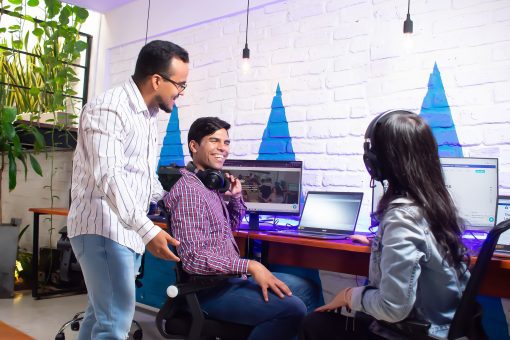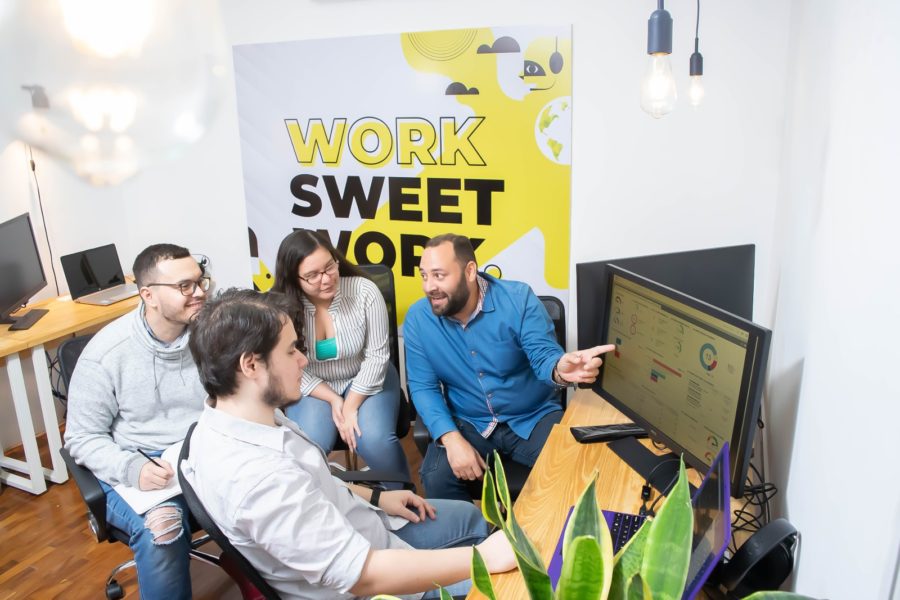As a freelancer, have you ever neglected your health routine? Or postponed your lunch hour? Perhaps you avoided exercising or dodged personal commitments in an attempt to finish your workday with all the tasks done.
That doesn’t translate into higher productivity. It would only turn out that, at the end of the day, on an empty stomach… or without having done any physical activity, what you were doing was not your highest-quality product.
The term “productivity” can be our enemy many times. It usually brings some concern or pressure on our work. When we talk about productivity at work, we refer to how efficient the business production process is — an essential aspect in the quality of the final results.
Throughout this article, we will tell you how several factors condition productivity, how to identify healthy habits to be more productive, and also how to discover those that are not positive for work productivity.
Among the challenges of being a freelancer is almost always the fact of facing a job without fixed hours—a job where we need to figure out how to adapt ourselves to the working day. We manage discipline before our responsibilities and our work tasks, try to eat well, and maintain physical activity daily to be as productive as we can be.
Duties And Routine
Sometimes, it can be challenging to maintain that routine when we have a lot of duties.
One of the productivity bibles that almost all people who have been related to the business world have read (or at least looked at) is “The 7 Habits of Highly Effective People” written by Stephen Covey. In this book, he tells us what the essential keys to being efficient and productive are both in our lives and at work.

The writer’s first point is proactivity. That is, “to be responsible for our own lives since our behavior is a function of our decisions, not of our conditions.”
This lesson can be applied both to our way of working and to life. The first step is to make your own decisions about work and not always justify yourself based on “the circumstances.”
Know Your Limits
I can tell you that the brain is not designed for long, strenuous hours. This is not a machine that operates for hours at a time, solving problems. Thus, the more time and tasks you demand of yourself, the less likely you are to be productive. For the brain, productivity translates into a balance between the use of time and the quality of the final product.
Rest Is Productive
Science confirms that we need at least 8 hours of rest. This allows our cognitive functions to reactivate, allowing us to be efficient. So, being productive involves resting well, which can positively impact one’s ability to perform at work.
Once you have rested, you need to find your own work rhythm and discover the time of day when you feel your productivity improves. We all have this moment in the day. Maybe it’s early in the morning or before your exercise routine.
Whatever it is, getting your own things done helps you focus on your work tasks. It also reduces anxiety since you will be anticipating a relaxing break once you finish working, not just more personal responsibilities.
Night Owl?
Usually, the best way to seize the day is not to stay up late but to start at dawn or early in the morning. It’s not that we are more productive at 4 a.m.; it is that the environment itself is.
Most of us think of ourselves as more night owls than we are, believing that we are more productive at night. This leads to prolonging our working hours until the wee hours, which does not translate into more effectiveness but rather more lethargy.
The reality is that maintaining a good sleep routine is as important as your interest in being more productive. Without a doubt, by starting the day early, we save much time. Because we are not lacking hours, what we are lacking sometimes is organization.
In the end, it’s all about habits and flexibility—as long as you build your habits and not the other way around. There is no such thing as a predisposition. Habits should be available because what matters is what you get out of them.
Eating Habits
Don’t sacrifice your health. Your body is your primary means of work, and as such, you must take care of it. The food we eat is the energy that the body and brain need to work optimally. For example, a vitamin-rich diet helps us enhance our cognitive functions.
In the absence of specific vitamins that our own body does not produce and that it looks for in the food we provide, it will begin to fail. Just like resting, taking a meal should be neither motivation nor reward after a day’s work. Remember, if it’s your power and booster, it should not be conditioned.
Schedule Is Essential
People often think that being a freelancer is working at any time, whenever we want to. And although this is partly the case… in reality, although we have freedom when choosing our schedule, it’s still necessary to stick to a schedule. You need a routine, and this means settling into a scheme, knowing how many hours of your day you’ll spend working and during which period you work better.
Furthermore, it can be very easy to get distracted when you are working on a computer with access to the Internet. However, focus is the key to success for us freelancers. With clear ideas and a focus on daily tasks, we can achieve the desired productivity of our work.
Productivity at work involves changes not only in your actions but also in your training and physical health. For the brain, productivity translates into a balance between the use of time and the quality of the final product. So, productivity is not about getting everything done; it’s about getting the right things done without burning out.
See more articles by Carla Fattal.






